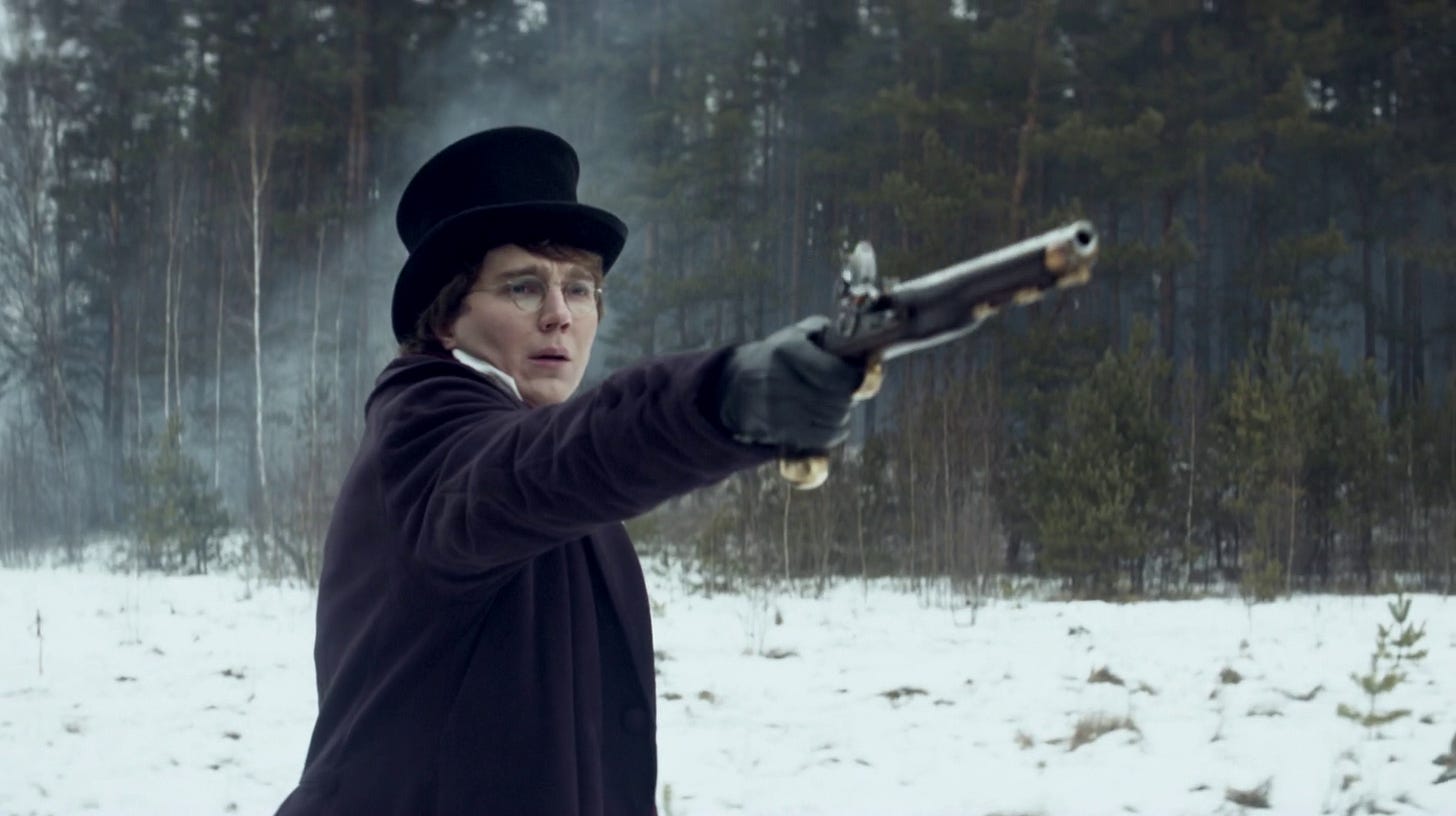War and Peace, by Leo Tolstoy
I "have it all" but am still unhappy. Loving wife, money, respect from others…none of these matter to me. No matter what I try, I find myself bored or trapped in my seemingly perfect existence. What should I do?
This might be the central question of War and Peace.
The tells the story of 3 Russian families during the Napoleonic War. Since providing takeaways about a fiction book is besides the point (and breaks the rule of "show, don't tell"), I'll talk about the book more broadly and my experience reading it in a spoiler-free way.
Why does War and Peace matter?
Its unique view of history. Throughout the book, Tolstoy argues against the "Great Man" theory of history, instead asserting that history is really about thousands of random coincidences and "the will of the people." Much of what happened in the war, according to him, was out of Napoleon's control, but happened on a bottoms-up basis instead. When the rank-and-file soldiers wanted to attack, they attacked. When they wanted to pillage and loot, they pillaged and looted.
There is a related idea about the "unknowableness of history" - that it's impossible to explain why certain historical events happen as we lack complete information. We will point to the causes apparent to us, but those are correlation, not causation. We "play the result" and judge an action good if the ultimate result is good. If Napoleon had conquered Russia, we would have seen him as a genius, even if was due to factors out of his control.
The book, like much of Russian literature, grapples explicitly with many of life's most important questions: What does it mean to live a fulfilled life? Should one marry for happiness or love? What are the limits of forgiveness? If you are in certain contemplative environments, like college or certain grad schools, you might already be spending plenty of time on topics like these. But, exploring them through a story is a different (and more accessible) experience than thinking about them abstractly. It's sometimes hard for us to define "meaning" in our own life or self-diagnose our own shortcomings. But when we read about a character like Pierre Bezukhov, a rich heir with "everything" who longs for meaning, it might resonate a bit more (or it does for me).
And finally, it's a great story and emotionally rich, rewarding book. I found myself invested in and caring about the characters in a way that surprised me. They reminded me of people I knew. Parts of them reminded me of myself. This wasn't "useful" in a strict sense, but was a rich experience, and one I might think upon fondly in the future, the way I would to a great play or a trip abroad with friends. Will this book make you a better venture capitalist or CEO? Maybe, probably not. But will it be a rich and rewarding experience? Hopefully!
The obvious question: How does one read a 1,200 page book? My advice would be to 1) read at least one page every day - momentum is key, 2) try to chip away at large sections when you can (e.g., on a plane, etc), 3) try to genuinely enjoy and savor it, and 4) read all the historical footnotes so you actually understand the context. If you read the part about 43,000 roubles and don't google how many 2019 US dollars that is, you've missed a key part of the story.
Two other points:
Much of the novel revolves around romantic relationships and the search to find the right person. And some of the characters ultimately do. But, if we apply Tolstoy's philosophy about the randomness of life, we can't call these destiny! Some of the couples meet under random circumstances. At the same time, though, there is meaning in these relationships. The world is random, but not meaningless.
Another benefit of reading fiction for me is that it helps mark times in my life and solidify memories. I remember reading Infinite Jest in a bar in DC on a Friday afternoon the summer after I graduated. Or Crime and Punishment on the 45 minute commute to my first summer internship (before smartphones!). True, you can read nonfiction as well, but there’s something about the emotional resonance of novels that makes them stick more persistently to your memory.
I would highly recommend this. The recent BBC adaptation is also excellent (though you miss out on Tolstoy's essays on history, etc.)




